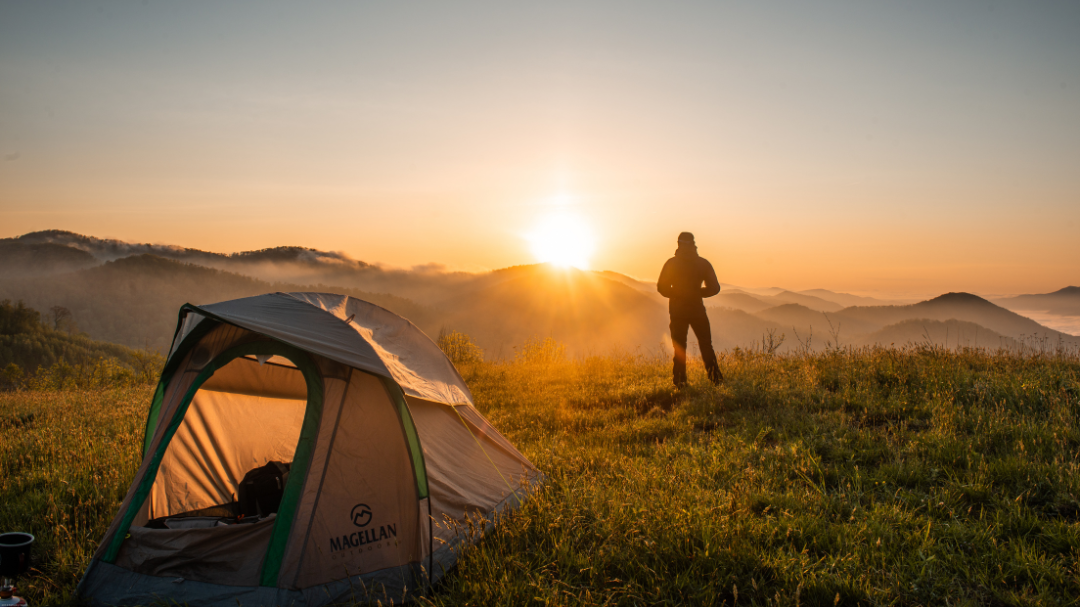
Camping on a Budget: How to Save Money While Enjoying the Outdoors
Share
Camping is one of the best ways to escape everyday life, connect with nature, and unwind — and the best part is, it doesn't have to break the bank! Whether you're a seasoned camper or new to the outdoor scene, you can enjoy a memorable camping experience without spending a fortune. Here’s how to camp on a budget while making the most of your adventure.
1. Choose Affordable Campsites
The first step to saving money on a camping trip is choosing an affordable campsite. While private campsites may offer luxurious amenities, national parks, state parks, and public lands often have much lower fees. In many cases, you can camp for just a few dollars a night. Look for dispersed camping areas (where allowed) for an even cheaper option — these are often free or have minimal fees but require more self-sufficiency.
2. Borrow or Rent Gear
Camping gear can be expensive, but you don’t need to buy everything. Before making any purchases, check if you can borrow equipment from friends or family. Alternatively, consider renting gear from local outdoor stores or through online platforms. This is an especially good idea if you’re just starting out or don’t camp often enough to justify buying everything.
3. Use DIY Camping Gear
If you already have some basic gear but don’t want to spend on extras, consider DIY options. For instance, make your own camping stove with a few simple materials, or create a hammock tent instead of investing in a pricey tent. There are tons of creative, budget-friendly ideas online that can help you craft your own camping solutions.
4. Plan Simple, Affordable Meals
Food is another area where you can save big while camping. Instead of purchasing expensive pre-packaged meals or fancy camping food, stick to simple, easy-to-prepare dishes. Bring non-perishable foods like pasta, rice, beans, and canned vegetables. You can also pack fresh fruits and veggies that last well. Invest in a small camp stove or use a campfire to cook easy meals like chili, stew, or roasted vegetables.
Additionally, opt for snacks that don’t require refrigeration and don’t need elaborate preparation, such as granola bars, trail mix, and crackers. Planning your meals ahead of time and buying in bulk can keep food costs down.
5. Carpool to Save on Gas
If you’re camping with friends or family, carpooling can significantly reduce your travel expenses. Gas can be a major cost when driving to remote campsites, so splitting the fuel cost between multiple people helps keep the price per person much lower. Consider using a carpool app to find other campers going to the same area and share a ride.
6. Look for Free Campsites and Activities
There are plenty of free camping opportunities out there if you know where to look. Many national forests, Bureau of Land Management (BLM) lands, and some state parks offer free or very low-cost camping. Websites like Campendium and FreeCampsites.net can help you locate these hidden gems.
Once you’re at your campsite, there’s no need to spend extra on activities. Take advantage of free outdoor activities like hiking, swimming, fishing, and stargazing. Nature is your playground, and it doesn’t cost a thing to enjoy it.
7. Pack Light and Smart
Minimize extra costs by packing light and ensuring you only bring what you need. Extra luggage may result in higher fees on transportation or unnecessary gear purchases. Stick to the essentials: a reliable tent, sleeping bag, cooking tools, food, and clothing. Being mindful of what you pack also helps prevent overbuying items that will just sit in your storage.
8. Take Advantage of Seasonal Discounts and Promotions
Many campgrounds and outdoor retailers offer seasonal discounts, promotions, and sales events. If you can, plan your camping trip during the off-season or shoulder seasons when prices tend to be lower. Many campgrounds and parks also offer discounts for longer stays or senior citizens, so be sure to ask about any available deals.
9. Keep It Short
While camping trips can be amazing, they don’t have to last for weeks. A weekend getaway can offer the same relaxing experience as a week-long adventure without the added costs of extended stays. By keeping your trip shorter, you’ll save on campsite fees, food, and travel expenses.
10. Use Apps and Websites for Discounts and Reviews
There are plenty of apps and websites designed to help you save money while camping. Use them to find the best deals, read campground reviews, and discover hidden gems. Some popular options include Hipcamp, AllTrails, and The Dyrt. These tools also help you stay updated on the availability of free camping options and discounts.
Embrace the Outdoors Without Breaking the Bank
Camping doesn’t have to be an expensive hobby. By planning ahead, choosing the right campsite, and finding creative ways to reduce costs, you can enjoy the great outdoors without breaking the bank. So gather your gear, plan your next budget-friendly adventure, and embrace the beauty of nature — all while keeping your wallet happy!
